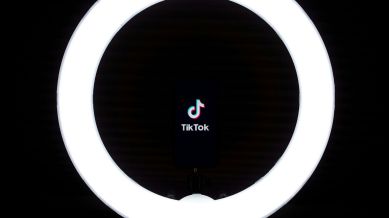As TikTok ban kicks into effect, can VPNs keep the app alive for Americans?
VPNs and other proxies to evade regional restrictions are often the most discussed workarounds when authorities look to ban specific platforms.

With TikTok going offline in the US on January 19, users are exploring workarounds that might allow them to continue using the popular social media app in the country. The ban on TikTok stems from a law that makes it illegal for the likes of app stores and other service providers to host a “foreign adversary controlled application.” TikTok is owned by China-based ByteDance.
The app began blocking access to users in the US on Sunday, with a pop-up message reportedly stating: “Sorry, TikTok isn’t available right now. A law banning TikTok has been enacted in the U.S. Unfortunately, that means you can’t use TikTok for now. We are fortunate that President Trump has indicated that he will work with us on a solution to reinstate TikTok once he takes office. Please stay tuned!”
However, the fine print of the law does not make it illegal for those who already have the app downloaded to continue using it. With that in mind, let’s examine whether virtual private networks (VPNs) can help TikTok users in the US bypass the ban.
How does a VPN work?
Apps or websites know where users come from and hence, they can impose restrictions or block users from accessing the platform based on their location, according to a report by CNBC.
This is possible because every single device that connects to the internet can be identified through a unique identifier known as Internet Protocol (IP) address. An IP address in IPv4 is written in a dotted decimal format and provides information about the network as well as the approximate geographical location.
The initial allocation of IP addresses is done by the Internet Corporation for Assigned Names and Numbers (ICANN). The distribution of IP addresses to users also involves Regional Internet Registries (RIRs) and internet service providers (ISPs).
A VPN can be a valuable tool in navigating location-based restrictions because it essentially changes a user’s true IP address to make it look like they are accessing content from another country.
When a user switches on their VPN, their internet traffic is encrypted and routed to a server in another country through a process called tunneling. The original IP address is then replaced with that of the VPN server, and the traffic is routed to the destination webpage. As a result, websites are unable to accurately track your location.
Major VPN service providers like ProtonVPN and ExpressVPN have servers scattered across the globe, which allows users to choose where they would like to appear to be from. Users have to pay a monthly fee to access most VPN services.
What are VPNs used for?
While they are not new, VPNs and other proxies to evade regional restrictions are often the most discussed workarounds when authorities look to ban specific platforms.
When India banned TikTok in 2020, the central government ordered internet service providers to block any access to the app. The demand for VPNs saw significant spikes in the country around the same time.
In the lead up to the US-imposed ban, ProtonVPN had said that such restrictions highlight why VPNs matter. “Millions rely on them for secure, private, and unrestricted access to the internet,” the VPN provider wrote in a social media post.
VPNs also have harmless use cases. For instance, businesses use VPNs so that their employees can connect to a corporate network when they’re out of office. Sports fans also use VPNs to watch games or matches in countries where the official broadcasts are not available.
Can VPNs guarantee access to TikTok?
Since data transmission requests have to flow through an external server, internet speed is often an issue when using VPNs.
There is also no guarantee that VPNs will help users in the US access TikTok, as the company may still be able to detect and block users from accessing the platform.
Without updates, the features of the application could also degrade on users’ phones. Casual users of TikTok might be deterred from the additional steps involved in circumventing various barriers to access the app.